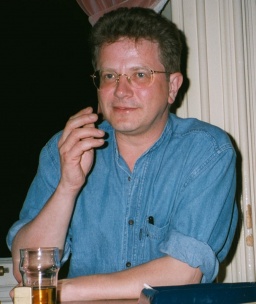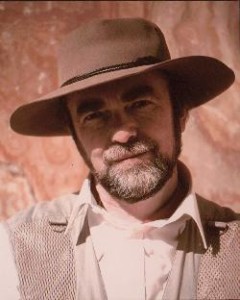New Chronology
New Chronology
New Chronology is a term that was coined in the 20th century and applied to two very different schools of chronological revisionism.
One was applied to the theories of Anatoly Fomenko(a), a Russian mathematician, “that challenge the traditional timeline of history, suggesting that events we know as ancient and early medieval actually occurred much later, between 1000 to 1500 AD, and that the construction of ancient history was done in the 17th and 18th centuries.” Nevertheless, he also had prominent supporters, such as Heribert Illig(c) and Gunnar Heinsohn(b) as well as Garry Kasparov the former World Chess Champion(d).
The other application of the term was to describe a possible realignment of the ancient chronologies of the Eastern Mediterranean. More particularly, it refers to the work of David Rohl and Peter James that grew out of the revisionism in Velikovsky‘s Ages in Chaos[039] and the Society for Interdisciplinary Studies (SIS).
There have been many variants of Velikovsky’s proposed revisions, such as those proposed by Emmet Sweeney. The matter remains unsettled to the satisfaction of all. This lack of resolution was referred to in a 2023 paper(e) by Donald Keith Mills, who offered some interesting observations. “I am sympathetic to the need for chronological revision but do not have a preference for any one model. In recent years, my relation to chronological revisionism, both in my role as part of the SIS C&C Review editorial team, and in my articles, has not been to prove or “disprove” chronological revisions, but to identify “errors, inconsistencies, and deficiencies” in the data and/or interpretations on which specific parts of Velikovskian-style revisions are based. It is important to clear the field of misinformation and infeasible interpretations that make it difficult to define what chronological revisions in general, or any revision in particular, may legitimately encompass.“
(b) https://www.q-mag.org/_search.html?req=heinsohn
(c) The Phantom Time Hypothesis • Damn Interesting
James, Peter
 Peter James (?- ) graduated in ancient history and archaeology at Birmingham University and engaged in postgraduate research at University College, London.
Peter James (?- ) graduated in ancient history and archaeology at Birmingham University and engaged in postgraduate research at University College, London.
James came to public attention when, in collaboration with Nick Thorpe, Nikos Kokkinos, Robert Morkot and John Frankish, he authored Centuries of Darkness [346] in which he explored the problems of the chronology of the Mediterranean and Near East in the second millennium BC. It generated much controversy, which continues as the authors’ website(c)(d) demonstrates.
The following years saw the production of an impressive three-volume work by David Rohl[229][230][232] offering similar ideas on a New Chronology for the region.>Initially, James and Rohl had jointly researched the flaws in Velikovskian chronology for a number of years, which resulted in a paper(e) written for the SIS in 1982. Rohl has published this document on his website as he “felt it would be useful to republish the ‘first outing’ of the New Chronology theory here since the original paper is difficult to find. It also serves to put the record straight about when and how the revision of the Third Intermediate Period took shape.”<
Unfortunately the collaboration ended over divergent views regarding the identification of the biblical Shishak, Rohl favouring Ramesses II, while James opted for Ramesses III.
James has also been studying the Atlantis question since the early 1970s. Paul Dunbavin recounts that James had originally favoured Megalithic Britain as Atlantis. Francis Hitching in The World Atlas of Mysteries[307] notes how James calculated the date of the demise of Atlantis as 3600 BC. He arrives at this by accepting the commonly agreed date for the beginning of Egyptian civilisation of 3100 BC. He then adds the 1,000 years, which Solon was told by the Egyptian priests, was the time that had elapsed between the Atlantean Athenian war and then arbitrarily subtracts 500 years to compensate for an assumed nationalistic exaggeration of Egypt’s antiquity; a habit common to many ancient kingdoms.
However, when he finally published his work on the subject, The Sunken Kingdom [047], he controversially offered a site in Anatolia in western Turkey as his preferred location for Atlantis. Unfortunately, he has been unable to obtain permission from the authorities to dig at the site and hopefully substantiate his theory. The book is supported by a website(a).
A few years earlier, Eberhard Zangger published The Flood From Heaven, in which he also placed Atlantis in western Anatolia, specifically in Troy. James offers a few critical comments including what he considers a major weakness in Zangger’s theory, namely that Troy did not ‘sink beneath the waves in a single day and a night’. [p.201]
James was highly vocal in disputing the dendrochronological dating of the Uluburun shipwreck discovered in 1982 off southwestern Turkey. The initial date given was 1315 BC, later revised to 1305 BC but due to a lack of bark on the piece of wood tested a definitive date was impossible. Even if the bark had been attached it would still only have provided the date that the tree had been felled not the date of the shipwreck(b). Subsequently, the more imprecise radiocarbon dating gave a date of ‘around’ 1300 BC.
James is also co-author, again with Nick Thorpe, of Ancient Inventions [757], which is a 672-page tome that offers a fascinating account of the inventive capabilities of ancient civilisations. In this 1994 book, he comments that “Plato’s yarn is largely a work of fiction” [p.455], which makes you wonder why, just a year later, he published The Sunken Kingdom!
Seven years later James and Thorpe teamed up again to compile Ancient Mysteries [1922], which covers familiar subjects, such as Nazca, Sodom & Gomorrah, the Vinland Map and the Maya.
(a) https://www.knowledge.co.uk/the-sunken-kingdom/
(b) https://www.centuries.co.uk/uluburun.pdf
(c) https://www.centuries.co.uk/replies.htm
(d) https://www.centuries.co.uk/faq.htm
(e) David Rohl Official Blog *
Rohl, David
David Rohl (1950- ) holds a degree in Ancient History and Egyptology from University College London. He is a former rock musician and is the author of three best-selling history books[229][230][232] that controversially proposed a New Chronology for the ancient  eastern Mediterranean and has presented television documentary programmes on the same subject, which have provoked severe criticism(a).
eastern Mediterranean and has presented television documentary programmes on the same subject, which have provoked severe criticism(a).
Bryant G. Wood, an American biblical archaeologist, disputes the validity of Rohl’s revised chronology as he sees it as an attack on his belief in the veracity of the Bible(f).
Drawing some inspiration from the work[1388/9] of Reginald A. Walker (1917-1989), Rohl has also argued for the Garden of Eden being situated in what is now northwestern Iran[230]. Equally controversial is Rohl’s claim that the biblical Tower of Babel was sited at the Sumerian city of Eridu[231]. This claim was explored in detail in Yesterday Channel’s, Secrets of the Bible series (S1 E8).
Unexpectedly, he has written an introduction to Andrew Collins’ bestseller, Gateway to Atlantis, in which he expresses his regret for the lack of firm archaeological evidence to support the existence of Atlantis, but is clearly sympathetic to the idea and is somewhat supportive of an Atlantic location. He repeated and expanded on his views at a subsequent lecture(b).
Rohl also proposed that the Shardana, one of the Sea Peoples, originally came from Sardis in Lydia and later established the Nuragic Culture in Sardinia [232.449]. Recently, Angelo Paratico propounded the same idea during a lecture in Hong Kong in 2004(d). Perhaps more pertinent is a Wikipedia entry which notes that “According to Timaeus, one of Plato’s dialogues, Sardinia and its people as well, the “Sardonioi” or “Sardianoi”, might have been named after “Sardò”, a legendary woman from Sardis, capital of the ancient Kingdom of Lydia in Anatolia.”(e)
Peter James is another high profile historian who has advocated[046] a similar radical revision of the chronologies of the Mediterranean and Near East.>Initially, James and Rohl had jointly researched the flaws in Velikovskian chronology for a number of years, which resulted in a paper(j) written for the SIS in 1982. Rohl has published this document on his website as he “felt it would be useful to republish the ‘first outing’ of the New Chronology theory here since the original paper is difficult to find. It also serves to put the record straight about when and how the revision of the Third Intermediate Period took shape.”<
Unfortunately the collaboration ended when until they had divergent views regarding the identification of the biblical Shishak(c), Rohl favouring Ramesses II, while James opted for Ramesses III, suggested earlier by Immanuel Velikovsky [0039]. James has also written a controversial work[0047] on Atlantis, placing it in ancient Lydia (Turkey). Complicating matters further is a related dispute as to whether the biblical Shishak is to be identified as the Egyptian Pharoah Shoshenq or they should be treated as two separate people!(g) Their original collaborative paper is available on Rohl’s website(h) which contains a number of interesting blogs but appears to have been only active in 2012, with nothing posted since!
Readers might be interested in reading the transcript of a 2009 interview that Rohl gave to Andrew Gough(i).
(b) https://www.andrewcollins.com/page/mysteries/drohl.htm
(c) https://davidrohl.blogspot.ie/
(d) https://www.gingkoedizioni.it/is-there-an-association-between-sardis-and-sardinia/
(e) https://en.wikipedia.org/wiki/Sardinian_people
(f) RohlsChronologyDeconstructed (bibleorigins.net)
(g) https://www.researchgate.net/publication/334975146_Shishak_and_Shoshenq_A_Disambiguation
(h) http://davidrohl.blogspot.com
(i) https://andrewgough.co.uk/interviews_rohl/
(j) David Rohl Official Blog *
